- Home
- David Estes
Soulmarked (The Fatemarked Epic Book 3) Page 4
Soulmarked (The Fatemarked Epic Book 3) Read online
Page 4
Hearing Roan’s name spoken so directly caused Gareth’s stomach to squeeze into a knot. “Yes, but he’s also the fool who thinks lions can lay down with lambs without taking a bite or two.”
“What if I told you they could?”
“I’d say you’re madder than a blind man who wants to become an archer.”
“Rhea cannot get her hands on Beorn Stonesledge. It will only encourage her to march to war sooner.”
“Then you’ll have to convince my brother to refuse her ransom,” Gareth said.
“What if I can do better?”
“I’m listening.”
“I’ll help you escape, if you promise to sign a treaty with the west.”
Gareth scoffed. “Rhea will never agree to peace.”
“Leave Rhea to me. As long as you are open to peace, I will help you.”
Seven
The Hinterlands
Lisbeth Lorne
She hadn’t killed the Garzi riders, nor their wolfish steeds, though she knew she could have.
But still, having probed into their minds, into their darkest dreams and fears, having used that against them, to subdue them…
Lisbeth felt sick.
In her mind’s eyes, she’d seen great violence—a man killing another, stabbing him in the heart—and she’d seen great love—a child being born, cradled between its parents, who nuzzled its cheeks, its head. She’d seen a slaughter: long ago, hundreds of years past but as clearly remembered as if it had occurred yesterday, a story passed from generation to generation. There was a storm, and a group of bearded men, running for their lives, caught—and killed. The Garzi had killed them.
They came now, women—bright yellow souls filled with great strength—marching across the field of fallen warriors. The wolf-like beasts with the red-lightning souls were tethered to soulless contraptions. Each unconscious warrior was hefted up, set down, and then dragged away by the beasts, sliding across the snow.
Lisbeth followed them. She couldn’t not follow them, the compulsion as strong as anything she’d felt in this short life or the long one before.
A long time later they stopped. Squat, unmoving souls rose on each side, some dark, some light. Lisbeth couldn’t discern what they were, except they were sleeping, their heavy exhalations breaking the silence.
Somehow, she understood where they were: a city. The Garzi live here. She stood in the midst of the city, watching as the unconscious warriors—not dead, at least they’re not dead—were tended to by the womenfolk. The souls of the unconscious men were now blue, frozen, while the women were as yellow as sunflowers, tinged with orange.
The women kept their distance, some of them muttering curses at her in Garzi, each of which she understood all too clearly. They thought she was some sort of demon from their myths and legends, a girl who would enslave their minds and bring them to their knees.
Is that who I am? Is that why I’m here?
And if so, can I change the course of my fate?
Lisbeth didn’t know why she’d followed them at all—clearly she wasn’t wanted here, and she might even still be in danger. And yet her feet had had other plans. Even now, the invisible eye on her forehead pulsed with satisfaction, seeming to speak to her: You are meant to be here. You have a purpose.
She hadn’t really considered that. The gift of life was so new to her that she couldn’t see beyond her arms, her legs, the sensations of cold and warmth and existing as more than a streak of light in the heavens.
“Girl is not what they say girl is,” a voice said, close by. It was a woman’s voice, rough and ancient, speaking the common tongue.
Lisbeth turned to find the strangest soul she’d seen yet, a shifting, pulsing orb of white light that seemed to radiate heat. She longed to touch it, to feel it, to experience the mysteries it must surely contain. Her hidden eye throbbed faster, hungry.
She held back, afraid of what would happen to this woman if she unleashed herself.
“I don’t know what I am,” she responded. “And I understand Garzi.”
“Common tongue is yours to speak. Even here. Girl is reminder.”
“Of what?”
“Of truth. Of fate. Of broken promises and false beliefs.”
“I—I don’t understand.”
“Girl will. I am called Crone. Girl can stay with me.”
The bright soul—Crone—turned away, and Lisbeth found herself following. Shapes rose up on each side, some kind of structures made of snow. She couldn’t see them clearly, but they contained souls. Homes, she thought. Each home has a soul of its own, a melding of the souls of those who live inside it.
All around the homes, souls of varying shapes, sizes, and colors moved, going about their daily work.
They passed something taller, impossibly tall, rising up and casting a shadow over all the souls surrounding it. The tower had no soul, a black empty void. And yet, something pulsed from within. No, many somethings, Lisbeth thought. What are those?
“What is that place?” Lisbeth asked.
“Hall of War,” Crone replied. “Dark place. Angry place. Sad place.”
Lisbeth could feel all of that in her bones, an aching weariness that threatened to pull her into the throes of despair.
And then they were past and the feeling vanished. Lisbeth could breathe again.
Something else seemed to cast a shadow across the entirety of the city, a looming block of strength. Cliffs, Lisbeth thought. Something lived inside the cliffs, this she knew, as she could see the souls, small and wiry, moving like predatory insects. The creatures wanted to leave the caves they lived in, to descend upon the Garzi village, but they would not. They feared the outside world.
Eventually, they came to a dwelling that was small, but filled to the brim with a bright white soul that matched the soul of Crone. “Warmer here,” Crone said.
Lisbeth laughed at the sensation as they entered the dwelling. Despite being surrounded by packed snow—ice really—it was warmer inside. Much warmer. Out of the icy wind and biting snowfall, Lisbeth’s skin burned.
“Why are you doing this? Why are you helping me?”
“I can,” Crone replied. Her words, though always cryptic, seemed so full of truth Lisbeth felt tears prick her eyes.
Am I crying? she wondered, reaching up to brush away the stray tears. It was a strange feeling, and yet not necessarily a bad one. If anything, it only made her feel more alive.
Another new feeling hit her as something gnawed at her stomach. She clutched her abdomen, frowning.
“Need food,” Crone said. “Prefer fire meat?”
Lisbeth wasn’t sure. “Do you?”
The woman laughed. “Mostly can’t wait. Too hungry. Fire meat take longer.”
“Hungry.” Lisbeth tried out the word—was that what she was feeling?
“Girl wait here. Bring fire meat.”
Lisbeth waited, listening to the sound of Crone’s footsteps crunching away. In the distance, words were spoken in Garzi, but she couldn’t make them out, only that it sounded like an argument. Moments later Crone appeared. She held something in her hands, a blackened, charred piece of a soul.
Bile rose in Lisbeth’s throat and she threw up. Her mouth tasted…what was the right word? Bitter. Yes, bitter. “I’m sorry. I can’t.”
“Girl must eat.”
“But the soul…” And then it was gone, fading away, slowly at first, and then faster, until it shot toward the sky in a streak of light. “Ahh,” Lisbeth murmured. It has returned home.
She probed forward toward Crone, and the woman pressed the meat into her hands, though Lisbeth couldn’t see it anymore. It felt both crusty and rubbery at the same time. She bit into it, juices bursting between her teeth, running down her chin.
“Mmm,” she murmured, the taste vanquishing the bitterness on her tongue.
She ate the rest and then asked for more.
When they’d finished eating, Lisbeth’s eyelids drifted downwards. They are min
e, she thought. I control them. And yet, try as she might, she couldn’t seem to keep them open. Her mouth opened involuntarily and she released a funny noise, like a deep-toned sigh.
Crone chuckled. “Girl tired. Long night. Many new experiences.”
“How do you know?” Lisbeth asked, her chin falling to her chest.
“Answers later. Sleep now. Blankets warm.”
Strong but gentle hands helped her crawl into a nook in the space. Something soft surrounded her: a blanket. She nuzzled her face into it, almost able to believe she was back in the heavens. She sighed.
And then she was gone.
Voices awoke her, arguing in Garzi. They were familiar, but seemed distant, as if shouted from a lonely star. Crone, her tone raspy and fierce. And the warrior who’d threatened her the night before. He’s awake. He’s alive.
She rolled over and opened her eyes, relishing the gentle pulsing soul of Crone’s home all around her. Crawling, she probed against the soul, searching for a way out, finding an empty space and a breath of cool wind.
The voices stopped.
“I will leave,” Lisbeth said.
“Girl no leave,” Crone said.
“Silence!” the warrior snapped, using the common tongue. “Girl leave. Girl go south. Girl never return.” Upon hearing his voice, images flashed in Lisbeth’s mind:
A young Garzi girl with beautiful brown eyes filled with tears. Walking toward a lake, sparkling under the noonday sun. She was young—younger than Lisbeth—and wore naught but a white dress, far too thin for the snow and ice that surrounded her. The warrior was beside her, holding her by the elbow, guiding her. He was crying, too, though only a single tear tracked from his eyes to his chin. He blinked the rest away.
Others followed, hundreds and hundreds of Garzi. They chanted a song, their hands raised skyward. It almost sounded like a prayer.
“Father?” the girl said. She spoke in Garzi, though Lisbeth’s mind translated it to the common tongue. “I’m scared.”
The warrior stopped, holding both of her shoulders. “I’m sorry, my star, there is no other choice.” The words broke from his lips like waves crashing on rocks.
“No. Zur does not speak for everyone,” Crone said in the present, chasing the images away. Her voice was soft but filled with as much command as the warrior’s, the male she’d called Zur. “Girl is guest. She stays.” Lisbeth blinked, trying to reclaim the images, to see what happened to the girl, but they were gone.
They are not mine to claim, she realized.
The soul of the warrior rocked back and forth. “Foolish woman,” Zur said. “Girl is dangerous. Unnatural.”
“Leave us,” Crone said.
Lisbeth held her breath, waiting for him to refuse, to bring his warriors, their weapons, to use force. Please don’t—I don’t know what I will do if you try to hurt me.
The moment shattered like crystals of ice, and the warrior turned away, muttering under his breath.
Lisbeth released a sigh, watching tendrils of her soul drift out, before being sucked back in as she took another breath. “He’s right. I should leave,” Lisbeth said.
“Girl choose what girl choose,” Crone said, and then went back inside.
After a moment’s hesitation, Lisbeth followed her.
Eight
The Northern Kingdom, Castle Hill
Annise Gäric
Archer was sulking, refusing to leave his room, taking his meals in bed, if he took them at all.
After she’d told him the truth, he hadn’t lashed out in anger, as she’d expected. Instead, he’d sunken within himself, not speaking, not looking at her.
It was a stark reminder that her brother was only sixteen, despite how strong and king-like he’d acted before the battle at Raider’s Pass. She would try to talk to him again later, but now she had mountains of frustration to chip away at.
Clang! Sir Dietrich’s sword jarred against hers so solidly she lost her grip, her blade flipping away and sinking into the snow, which was ankle deep.
“Again,” Dietrich said. “Try to hang onto your sword this time.”
Annise glared at him, which wasn’t particularly fair. She was the one who’d asked him to teach her a thing or two about sword fighting. “Sorry if I’m not swordmarked like you.”
“That has nothing to do with it,” Dietrich said. “I wasn’t even trying. I’ve seen a child fare better.”
Annise seethed, determination coursing through her. She strode to her sword, grabbed the hilt, gripping it so tightly her fingers ached, not caring, whirled back around, and charged. She swung the sword like a club, slamming blow after mighty blow, pounding away as if trying to hammer a metal stake into frozen rock.
Dietrich danced back, deflecting each attack with graceful ease, not so much blocking them as accepting them. The kiss of steel on steel, far too romantic for Annise’s taste. For her, a fight should be brutal and rough.
Growing impatient, she retracted her sword back as far as it would go, building momentum, and then swung as hard as she could, the blow that would end the contest.
Dietrich ducked, simultaneously thrusting his own blade up, throwing her off balance as, still gripping her hilt tightly, refusing to let go, she toppled backwards, landing on her arse. Her opponent stood on the broad side of her sword. “Better, but you’re still dead. Try not to hold onto your sword so tightly or you might choke it.”
Annise gritted her teeth. Not only did she hate losing, but she hated losing so badly. “You told me to hang on tighter,” she growled.
Dietrich chuckled, which only made her angrier. “Yes, but not that tight. Somewhere in between is better.”
“Get off my sword.”
“I think you’ve had enough for one day.”
“Frozen hell, I don’t need the damn thing anyway,” Annise said, releasing her grip, rolling over and kicking out Dietrich’s legs in the process. Surprised, the expert swordsman lost his own weapon as he tumbled to the ground. And then Annise was on top of him, pounding away with both fists, rubbing snow in his eyes, pinning his arms behind his back and hissing, “Do you submit?”
Gasping, Dietrich said, “You’re going to break my arms!”
“Then submit.”
“I submit, woman! Frozen gods of the north!”
Annise released him, smacking him across the back of his helmet for good measure. “I think you meant Your Highness,” she said as she stood up, smiling.
“I meant woman,” Dietrich said as he sat up and began massaging his arms. “And it’s not my fault your paramour ran off with some other woman.”
Annise froze. What did he mean ‘other woman’? “He left because he’s afraid of himself,” she said. “He left alone.”
“Then why is that friend of his missing? You know, the blacksmith? Kay or Lay or something.”
“Fay,” Annise murmured.
“Aye, her. She’s gone. No one’s seen her since the day Tarin vanished.”
The adrenaline left Annise, and she felt cold seep into the gaping hole that had opened in her chest. “It doesn’t mean anything. And anyway, even if she accompanied him, they are just friends.”
“Traveling companions have a way of turning into more than friends,” Dietrich said. “Isn’t that how you and Tarin became involved in the first place?”
Annise knew he was just goading her. She had nothing to worry about from Fay. If anything, the blacksmith was her friend, too. After all, she’d designed her weapon, the Evenstar, a miniature version of Tarin’s Morningstar. In a way, she was glad Tarin was not alone. “Sorry I rubbed snow in your face,” Annise said, walking away. Over her shoulder, she added, “Though I did enjoy it.”
She was tired of waiting for her enemies to come to her, tired of treading lightly on everyone’s feelings, Archer’s included. My own included, she reminded herself. I’ve been as coddled as anyone. If anything, Dietrich did me a favor. It was time to face reality and move forward.
She passed Sir Jo
nius in the corridor, but she silenced his greeting with a raised hand. “Later. We leave on the morrow. We cannot risk the storm hitting before we go.”
He nodded. “Good.”
She continued her path, past the entrance to the stairway that led to Darkspell’s old chambers. The last place I saw Tarin. The last place we kissed. The place where she’d found his farewell letter and the thick sheaf of parchment with his stories written down. The same stories she’d refused to read, out of concern that her fragile heart would shatter into a billion pieces or some such nonsense. She stopped. Enough was enough. She’d been avoiding the place like she’d avoided the winter ball growing up.
The stairwell was dark as she descended, but she didn’t bother going to fetch a light. There was nothing to see anyway. When she reached the bottom landing, she felt for the door, shoving it open and striding inside. Complete darkness surrounded her. Her fingers trailed along the rough stone as she made her way over to THE CORNER. The last place she’d seen him, kissed him, felt him. She sat down, inhabiting the space with her body. Claiming it for her own. It was no longer a bitter memory, but a victory. I kissed him. I conquered him. And he is mine, regardless of his worries and fears. Either way, I will survive without him, as I have always done.
Though that memory burned as bright as a torch, she now knew the truth of why Tarin had let her touch him, only to leave immediately after. It was his way of saying goodbye. He wanted our last memory to be beautiful.
And it was.
The thought left her warm and cold at the same time.
There was no jealousy in her heart at the thought of Fay traveling with him. She knew Tarin would be faithful to her the same way she knew the sun would rise on the morrow and the day after that and on and on into the eternities. In some ways, she wished he wouldn’t, that he would find another, someone to make him happy again.
In some ways, she didn’t want him to be alone, even if it wasn’t she who filled the space beside him.
“I will always love you, Tarin Sheary, until the day I die,” she said aloud. “But now I must say goodbye. There’s too much work to do.”

 Star-Born Mage
Star-Born Mage Fire Country
Fire Country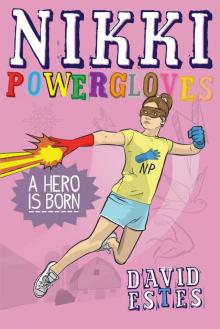 Nikki Powergloves- A Hero is Born
Nikki Powergloves- A Hero is Born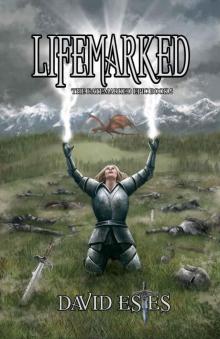 Lifemarked (The Fatemarked Epic Book 5)
Lifemarked (The Fatemarked Epic Book 5) Angel Evolution
Angel Evolution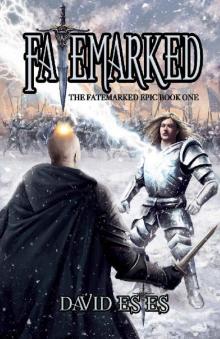 Fatemarked (The Fatemarked Epic Book 1)
Fatemarked (The Fatemarked Epic Book 1) The Star Dwellers
The Star Dwellers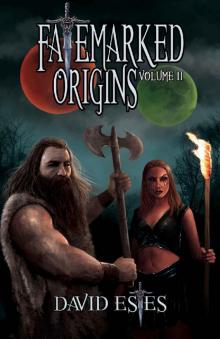 Fatemarked Origins: Volume II (The Fatemarked Epic Book 2)
Fatemarked Origins: Volume II (The Fatemarked Epic Book 2) Slip (The Slip Trilogy Book 1)
Slip (The Slip Trilogy Book 1) Truthmarked (The Fatemarked Epic Book 2)
Truthmarked (The Fatemarked Epic Book 2)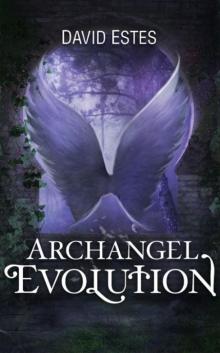 Archangel Evolution
Archangel Evolution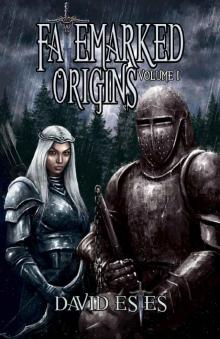 Fatemarked Origins: Volume I (The Fatemarked Epic Book 1)
Fatemarked Origins: Volume I (The Fatemarked Epic Book 1) Flip (The Slip Trilogy Book 3)
Flip (The Slip Trilogy Book 3)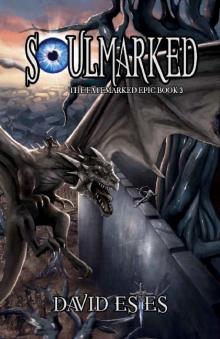 Soulmarked (The Fatemarked Epic Book 3)
Soulmarked (The Fatemarked Epic Book 3) Brew (Salem's Revenge Book 1)
Brew (Salem's Revenge Book 1)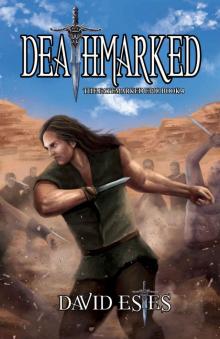 Deathmarked (The Fatemarked Epic Book 4)
Deathmarked (The Fatemarked Epic Book 4)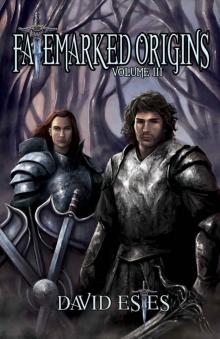 Fatemarked Origins (The Fatemarked Epic Book 4)
Fatemarked Origins (The Fatemarked Epic Book 4) The Moon Dwellers
The Moon Dwellers Boil (Salem's Revenge Book 2)
Boil (Salem's Revenge Book 2) Grip (The Slip Trilogy Book 2)
Grip (The Slip Trilogy Book 2) Salem's Revenge Complete Boxed Set
Salem's Revenge Complete Boxed Set Demon Evolution
Demon Evolution Water & Storm Country
Water & Storm Country The Earth Dwellers
The Earth Dwellers The Sun Dwellers (The Dwellers Saga)
The Sun Dwellers (The Dwellers Saga)